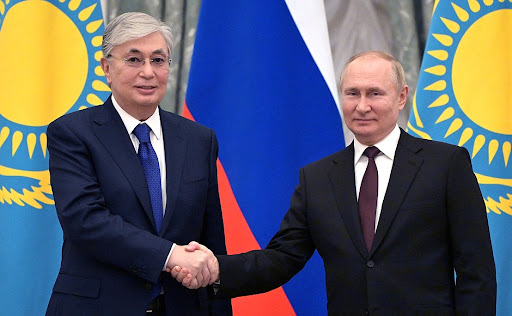Russian President Vladimir Putin is set to hold talks with Kazakhstan’s President Kassym-Jomart Tokayev, who begins a two-day state visit to Russia on Tuesday. The discussions, according to the Russian presidential press service, will focus on key issues concerning the development of Russian-Kazakh relations, as well as cooperation across multiple sectors.
The Kremlin announced that the talks will cover a wide range of topics, including political collaboration, trade and economic development, cultural and humanitarian initiatives, and strategic partnership. The two leaders are also expected to discuss major regional and global issues of mutual interest.
As part of the visit, Putin and Tokayev will jointly address participants of the 21st Forum of Interregional Cooperation between Kazakhstan and Russia via video link. The forum, hosted in Uralsk, Kazakhstan, aims to enhance cross-border cooperation and promote joint projects between the two nations’ regions.
Following the talks, several important bilateral agreements are expected to be signed, further strengthening the long-standing alliance between Moscow and Astana. These agreements are anticipated to boost trade, investment, and cultural exchanges, consolidating Kazakhstan’s position as one of Russia’s most significant partners in Central Asia.
Kremlin Spokesman Dmitry Peskov earlier stated that President Putin may also brief President Tokayev on the current situation at the front lines and ongoing efforts to resolve the conflict in Ukraine. Peskov emphasized that Putin routinely updates his counterparts on such developments during high-level discussions.
Russia and Kazakhstan share deep historical, economic, and security ties, both being members of the Eurasian Economic Union (EAEU) and the Collective Security Treaty Organization (CSTO). The state visit underscores both nations’ commitment to maintaining close cooperation amid shifting geopolitical dynamics and global challenges.
Tokayev’s visit is expected to reaffirm the strategic alliance between the two neighbors and open new avenues for collaboration in energy, transport, and regional stability.

